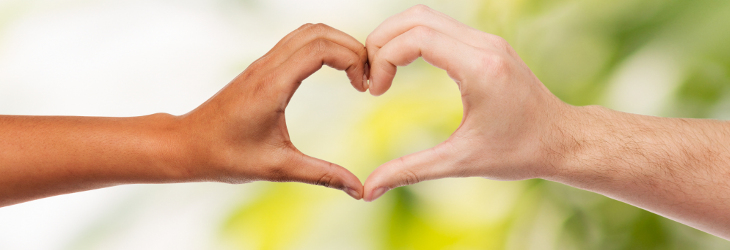13+ Natural Solutions for Avoiding and Treating Depression

Are you living a depressed and stressed lifestyle? There is no doubt that our fast-paced days in which many are living pay check to pay check are a big contributor to these negative feelings. Some statistics from the Centers for Disease Control and Prevention say that 1 in 10 American adults report depression, but everyone experiences some level of depression at some point in their lifetime. Luckily, there are natural solutions for avoiding and treating depression.
The best part? These tips could not only make you a happier person, but also a healthier person.
Here are 5 potential solutions for avoiding depression.
1. Avoid Junk Food, Fast Food, and Processed Food
It may or may not be surprising, but junk food has actually been linked to depression. In fact, according to one study published in the journal Public Health Nutrition, both junk food and fast food (if there is really a difference) consumption sparks depression.
The researchers found that those consuming fast food are 51% more likely to be depressed than those consuming very little or none of the health-compromising food. The study concludes with: “Fast-food and commercial baked goods consumption may have a detrimental effect on depression risk.”
Sugary sodas, high-fructose corn syrup, and again, processed foods, also contribute to depression by causing ill health effects. These effects lead to obesity, diabetes, numerous other health problems, and eventually to feelings of self-pity and depression due to feeling physically weak.
2. Eating Fats to Boost Serotonin and Help Treat Depression

A review of three studies shows that omega-3 supplementation such as EPA was significantly more effective than placebo in reducing both unipolar and bipolar depression.
In fact, 8 out of 10 patients with bipolar depression experienced an at least 50% reduction in Hamilton depression scores after one month. It is important to note that there were no significant side effects.
Another study which adds weight to the necessity of fats states that suicidal thoughts and tendencies in both male and female patients with depression are higher when they have low total cholesterol, LDL and total lipids. Yet disparaging healthful fatty foods is “hilarious.”
3. Expose Yourself to more Sunlight, Up Vitamin D3 Intake
You’ve probably heard it before: if you’re feeling depressed, get some mood-uplifting sun exposure. Well, this advice actually holds true for multiple reasons. There are a multitude of studies that have found an association between vitamin D deficiency and an increased risk of depression. Further, increasing vitamin D was found to reduce depression risk specifically.
One study concluded with:
“We found that low vitamin D levels are associated with depressive symptoms, especially in persons with a history of depression. These findings suggest that primary care patients with a history of depression may be an important target for assessment of vitamin D levels.”
An analysis of several studies has also found that high levels of vitamin D corresponds with a decreased risk of prolonged existing depression. The study, involving the elderly, showed that those with lower levels of vitamin D were more likely to be depressed than individuals with healthy levels.
4. Don’t Drink Diet Soda
Similar to findings linking processed foods with depression, research has also found a link between diet soda consumption and depression.
One study by the National Institutes of Health found that 31% of individuals consuming 4+ daily servings of artificially sweetened soda, iced tea, or fruit drinks had been diagnosed with depression. This compares to 22% of regular soda drinkers reporting a diagnosis of depression.
Further, those drinking 4 or more cups of coffee per day were 10% less likely to suffer from depression than non-coffee drinkers.
5. Mediterranean Diet Shows Promise
Additionally, adherence to a Mediterranean diet has been shown to reduce the risk of depression, from a 26% risk reduction in the first upper successive category of adherence to 51% in the third successive category. Interestingly, the fourth and final category, those adhering the most to the Mediterranean diet, had a reduced risk of depression by 42%. This may be due to the emphasis placed on reducing meat and whole-fat dairy, which could result in a lower overall intake of fat.
6. Getting over Depression with Light Therapy
There is a great deal of evidence that supports the use of light therapy to treat depression. In fact, one study found that light therapy works faster to effectively treat depression when compared to drug treatment. You can purchase a light box for a reasonable price, or may choose to opt for real sunlight.
7. Using the Herbs St John’s Wort, Ginseng, Rhodiola, Lavender to Help Treat Depression
As for herbal medicine, St John’s Wort (SJW) is highly popular for a good reason. A review of thirteen studies found that this herb is roughly equal to the SSRI drugs prescribed for depression, in terms of clinical response, remission rates, and reduction of depression scores. Although it was deemed non-significant, SJW was slightly more likely to assist patients in achieving remission than the SSRIs.
In addition, St John’s Wort was less likely to cause negative side effects and withdrawals from trials.
Other research involving 135 patients found that St John’s Wort can be superior to the common drug fluoxetine, in both lowering depression scores and achieving remission at a rate of 38% over 30%.
Read: How Antidepressants Might be ‘Worsening Depression’
Rhodiola, or Tibetan ginseng, is yet another herb that has shown promise in the treatment of depression. One study involving patients with mild to moderate depression found that over six weeks, both the 340mg/day and 680mg/day groups experienced significantly improved overall depression, emotional instability, insomnia, and somatization, while the placebo group had no improvement.
Further moving forward on potential solutions, another study comparing rhodiola to the drug Zoloft found that the rate of adverse effects was only 30% for rhodiola, which was better tolerated, compared to 63%. Although the response rate for rhodiola was 40% greater than placebo, compared to 90% greater for Zoloft, this may improve over a longer period of time than the 12 weeks, and herbal medicines are usually prescribed and purchased in combination with others.
Not surprisingly, lavender may also possess beneficial effects on depression, with patients drinking two cups of lavender tea daily experiencing greater relief from their symptoms than those receiving standard treatment alone. Even using lavender as aromatherapy may benefit insomnia and depression, particularly when using pure lavender oil.
8. Consider Aromatherapy Oils

While aromatherapy oils probably won’t eradicate depression, they can act as a tool to help combat it. Consider essential oils such as clary sage, basil, rose, ylang-ylang, sandalwood, and lavender as part of your arsenal to relieve the effects of depression.
9. Get Enough Sleep
Sleep is an important part of getting well. It helps heal illnesses, including depression. Be sure to allow yourself adequate time for sleep. Your mind and your tense muscles will thank you. Also consider a relaxing massage if you’re looking for another natural way to relieve tension.
In addition to proper medical treatment, using these natural, remedies can help soothe your mind and ease your depression so you can be happier and more relaxed. Have any other personal tips? Be sure to share with others in the comments below.
10. Take Proper Supplements
We all know that the average American diet isn’t conducive to overall well-being. That said, always be sure to consult your health care practitioner before taking any supplements or adding new foods to your diet. Consider adding the following supplements and remedies to your diet to help avoid and treat depression:
- Fish oil
- Saffron
- SAMe
- 5-HTP
- Hot Kava
In addition to monitoring the healthy supplements you take in, you may also want to pay attention to the potentially harmful foods and substance you consume. For example, depression and alcohol addiction often present themselves together and can snowball into a very serious problem. Similarly, junk food has been tied to depression.
11. Reframing: Change Your Way of Thinking

Positive thinking, while it sounds overly simple, can do wonders for your mood. Consider the following tips to help change your negative way of thinking, and learn to focus on the positive:
- Positive affirmation. Positive affirmations are statements that describe what you desire. Engaging in positive affirming processes every day is known to have an impact on your thought process. Begin slowly, making it a point to repeat a few positive mantras as you start each day.
- Cognitive behavior therapy. The way we perceive situations influences our emotions. Cognitive behavior therapy is a form of psychotherapy that doesn’t have to include drugs, and it’s shown to be effective in treating those suffering from depression.
- Meditate. There are many ways to engage in mediation. You may sit quietly to clear your mind while focusing on nothing but the rhythm of your breathing. Or, you may instead try to focus on just one thing as you learn to calm your mind. Regardless of how you go about it, reflection is an important part of the learning process.
- Don’t blame yourself. Setbacks are a natural part of life. Learn to perceive them as nothing more than learning experiences. This will help to release guilt and focus on positivity.
- Guided imagery. The human body responds to what you imagine. Guided imagery can be a powerful tool for relaxing your body and calming your mind. Try music therapy or writing to help you achieve a state of relaxation using guided imagery.
12. Keep a Mood Journal
If you’re unsure of how to begin getting over depression, consider keeping a mood journal. Perhaps you feel as though your thoughts are jumbled and you experience a wide range of fluctuating emotions. If this is the case, a mood journal or diary will help you track the root of your emotions. Once you figure out what’s causing the negative feelings, you can work to avoid the triggers and cope with everyday stressors in a more positive way.
13. Nurture Healthy Relationships

The relationships you have with people are often reflective of the way you feel. Maybe you avoid social settings because of your depression, or maybe some of your relationships are unhealthy. Consider the following tips to nurturing healthy relationships:
- Find a support group. It is helpful to have a safe place to go and be in consistent contact with people who understand or have empathy toward your depression. Just make sure the people you are with are also practicing safe tips to feel better.
- Share your time with friends. Interesting, supportive, and positive friends can help you battle with depression naturally. End relationships with, or take a break from, narcissists or other people who constantly drain your energy or cause you to feel anything but positive.

a little exercise could be added to this list
Great list…!!!. makes sence and I agree with Mary Jane Miller, exercise is a good one… raising your vibration can be done in many ways…take a look at: http://youtu.be/HBKk5A4zBeM
Like another reader suggested, light exercise should be added to this list. I'd also like to add spending time in nature – not only for sunlight exposure and fresh air, but to connect with the world around you and quiet your mind.
I already do all of the above and have been for a couple of years. Now I am depressed. What else is there?
EFT
emotional freedom techniques
Thanks. I will look into it.
You have to eat very healthy find what make you depressed and avoid it or find this you love to do and you will be a happy person.
Lack of love and perspective.
Sungazing 🙂